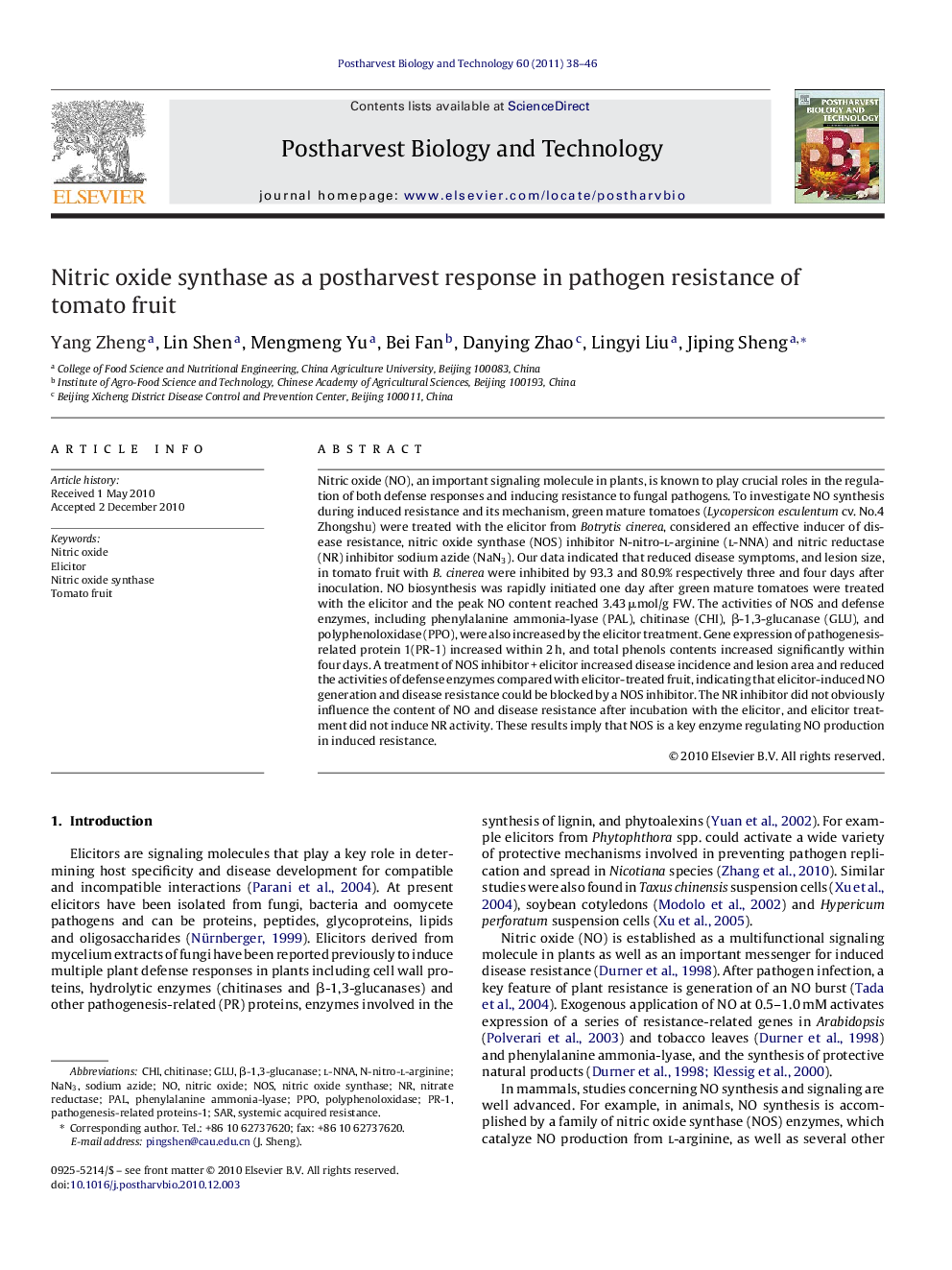| کد مقاله | کد نشریه | سال انتشار | مقاله انگلیسی | نسخه تمام متن |
|---|---|---|---|---|
| 4518950 | 1322808 | 2011 | 9 صفحه PDF | دانلود رایگان |

Nitric oxide (NO), an important signaling molecule in plants, is known to play crucial roles in the regulation of both defense responses and inducing resistance to fungal pathogens. To investigate NO synthesis during induced resistance and its mechanism, green mature tomatoes (Lycopersicon esculentum cv. No.4 Zhongshu) were treated with the elicitor from Botrytis cinerea, considered an effective inducer of disease resistance, nitric oxide synthase (NOS) inhibitor N-nitro-l-arginine (l-NNA) and nitric reductase (NR) inhibitor sodium azide (NaN3). Our data indicated that reduced disease symptoms, and lesion size, in tomato fruit with B. cinerea were inhibited by 93.3 and 80.9% respectively three and four days after inoculation. NO biosynthesis was rapidly initiated one day after green mature tomatoes were treated with the elicitor and the peak NO content reached 3.43 μmol/g FW. The activities of NOS and defense enzymes, including phenylalanine ammonia-lyase (PAL), chitinase (CHI), β-1,3-glucanase (GLU), and polyphenoloxidase (PPO), were also increased by the elicitor treatment. Gene expression of pathogenesis-related protein 1(PR-1) increased within 2 h, and total phenols contents increased significantly within four days. A treatment of NOS inhibitor + elicitor increased disease incidence and lesion area and reduced the activities of defense enzymes compared with elicitor-treated fruit, indicating that elicitor-induced NO generation and disease resistance could be blocked by a NOS inhibitor. The NR inhibitor did not obviously influence the content of NO and disease resistance after incubation with the elicitor, and elicitor treatment did not induce NR activity. These results imply that NOS is a key enzyme regulating NO production in induced resistance.
Research highlights▶ The elicitor from Botrytis cinerea was considered as an effective inducer of disease resistance. ▶ Increased disease resistance and NO biosynthesis in tomato fruit with the elicitor treatment were found. ▶ The elicitor-induced NO generation and disease resistance could be blocked by a NOS inhibitor, which implies that NOS is a key enzyme regulating NO production in induced resistance.
Journal: Postharvest Biology and Technology - Volume 60, Issue 1, April 2011, Pages 38–46